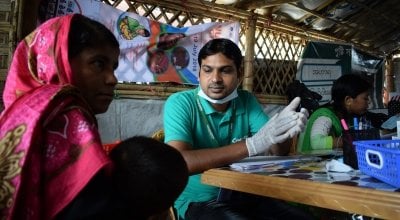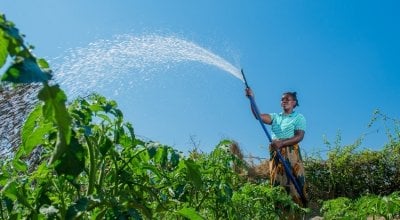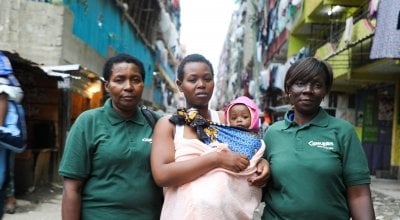
Read our 2024 annual report

Knowledge Hub
Why are we in Iraq? Years of conflict in Iraq have uprooted millions of people, eroded social cohesion, disrupted access to basic services, destroyed livelihoods, and led to increased protection risks. While the worst of the violence has receded, the recovery and development process have just begun.
Post-conflict doesn’t immediately equal post-crisis
Over 1 million people continued to be displaced in Iraq after years of conflict and hostilities, unable to return to their homes due to trauma and fear of persecution, damaged shelters, and a lack of opportunity to earn an income. Over 112,000 are living in internally displaced persons (IDPs) camps, and nearly 85,000 are living in emergency shelters.
IDP communities face challenges accessing essential protection services. The closure last year of several camps also compelled people to either return home, or go into secondary displacement—moving to another camp or emergency shelter. In many cases, both IDPs and those who return face similar challenges: a lack of livelihood opportunities and basic public services.
Concern works with its partner in Iraq to provide case management services for children in displacement camps, as part of its larger work to provide mental health and psychosocial support services and facilitate awareness-raising activities on child protection issues.
Latest achievements
Protection
As part of our protection work in Iraq, Concern has established community centres designed to improve the well-being of women and children in both northeast Syria and in Iraq’s Duhok governorate. Last year, this programme reached nearly 1,500 people.
Localisation
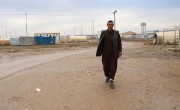

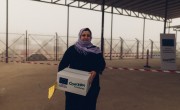

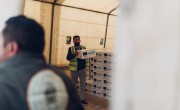
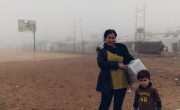
How we're helping Iraq
We are working hard to combat suffering and to build resilience in Iraq. We are doing this by establishing programmes which will offer protection services for children and tackle gender inequality.
Organisations who fund us

Other ways to help
Corporate support
Is your company interested in working together for a common cause?
Fundraise for Concern
From mountain trekking to marathon running, cake sales to table quizzes, there are lots of ways you can support our work.
Buy a gift
With an extensive range of alternative gifts, we have something to suit everybody.
Leave a gift in your will
Leave the world a better place with a life-changing legacy.
Volunteer with Concern
The lots of ways to get involved with our work as a volunteer
School fundraising
Without the generous support from schools, we wouldn't be able to do the work that we do.


